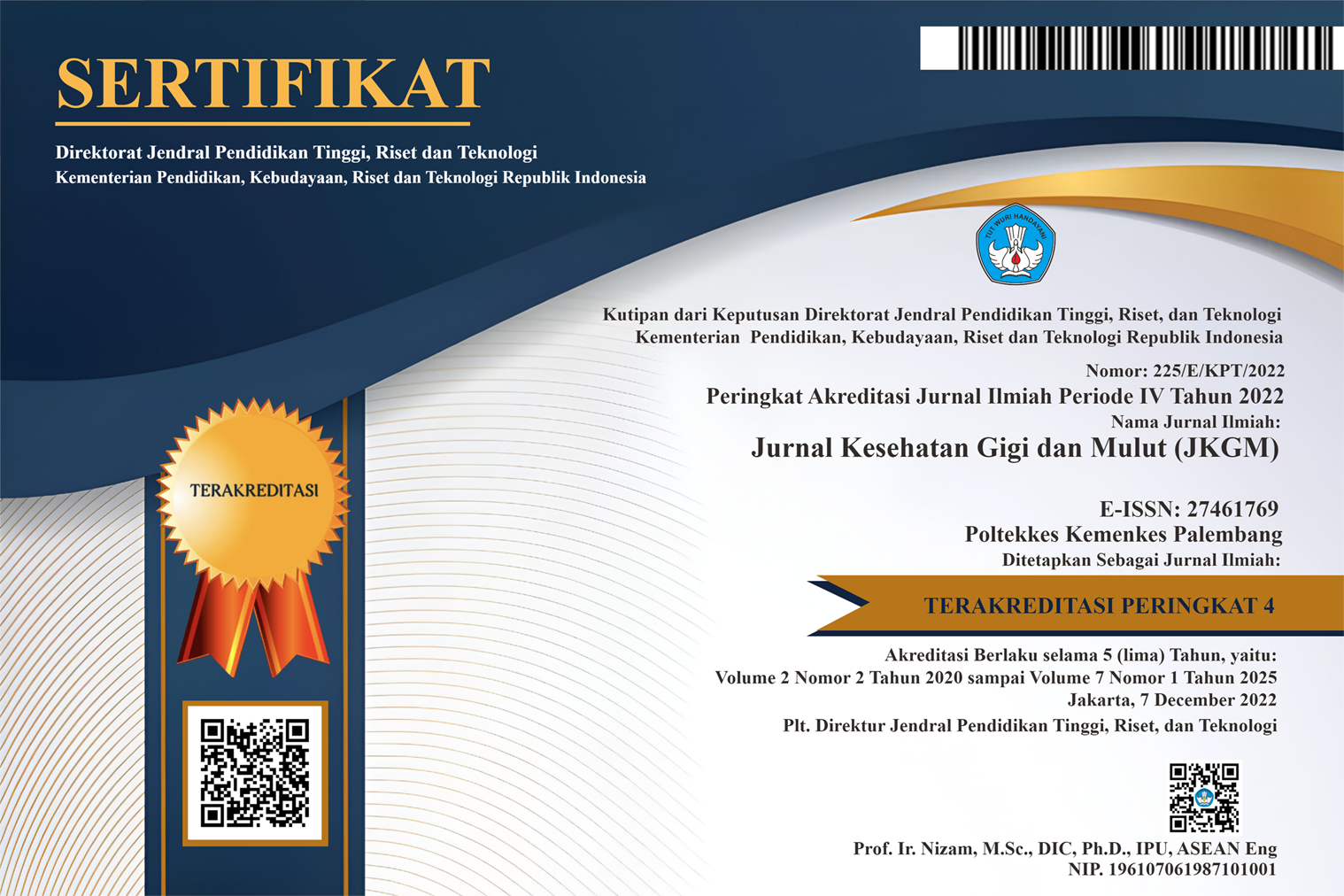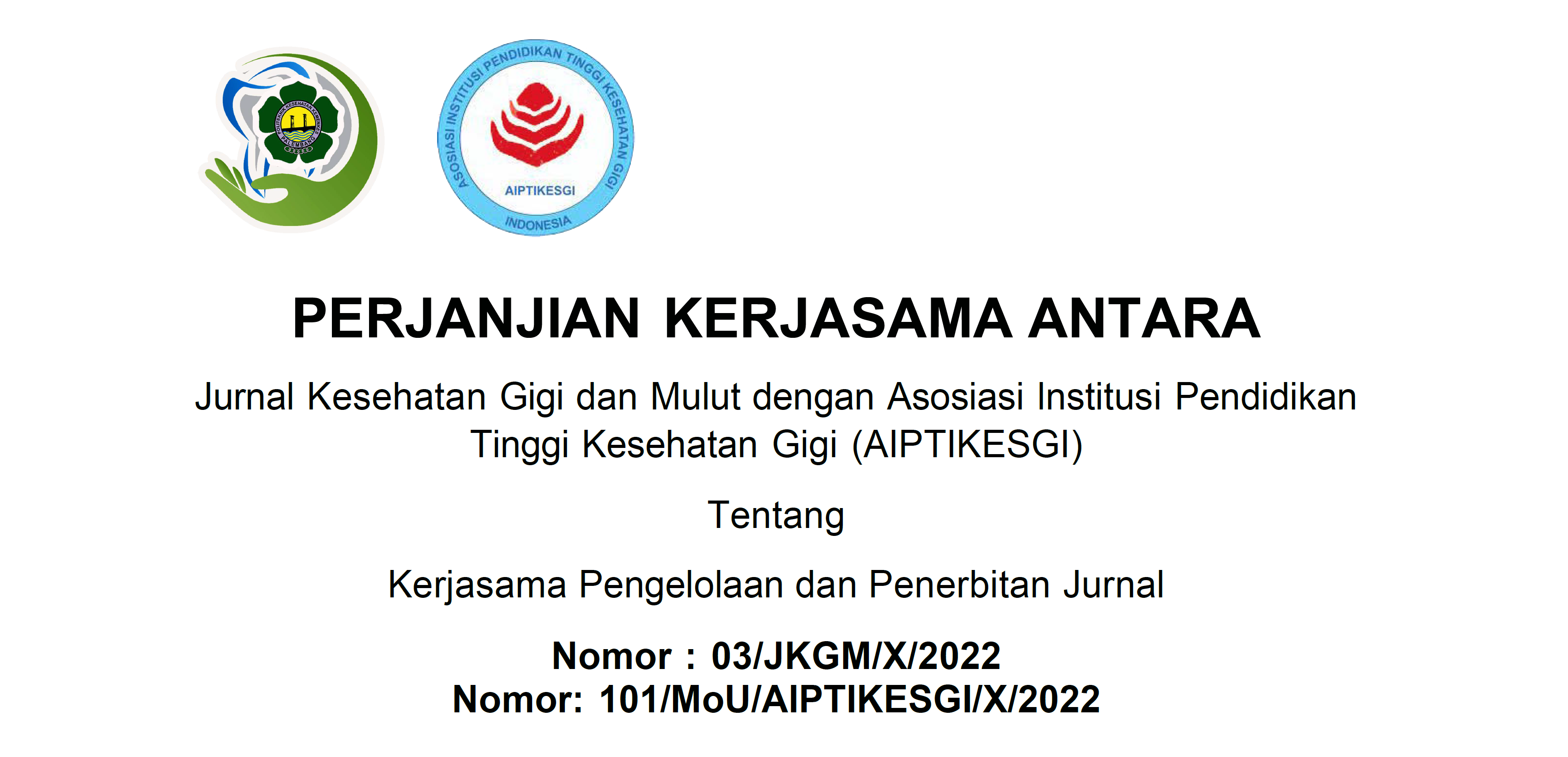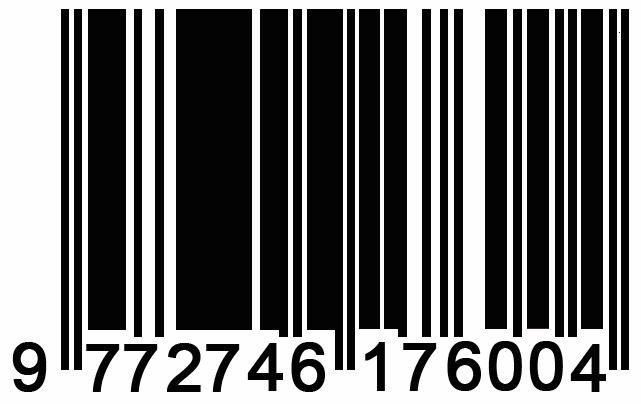UJI DAYA HAMBAT PERMEN JELI LIDAH BUAYA TERHADAP Streptococcus mutans
Abstract
Background: The bacteria which has an important role in the dental cariess process is Streptococcus mutans. Antibacterial agent which can inhibit or kill Streptococcus mutans there was aloe vera that can be made as a product like jelly candy. The aim of this study was to determined antibacterial activity of aloe vera jelly candy on the growth of Streptococcus mutans.
Methods: An in vitro experimental laboratory used in this study. Well diffusion method was used to determined antibacterial activity of Streptococcus mutans and there were two sample groups: aloe vera jelly candy and jelly candy without aloe vera. Antibactrial activity of jelly candy was measured by calculated zone of inhibiton in milimeter using caliper. Independent T-test was used to analyzed the mean zone of inhibiton and assess the difference in significance between the test groups.
Results: Aloe vera jelly candy could inhibit Streptococcus mutans significantly compared to jelly candy without aloe vera (p<0,05).
Conclusion: Aloe vera jelly candy had the potential to be used for prevention of dental caries because it had antibacterial activity against Streptococcus mutans.
Copyright (c) 2023 Jurnal Kesehatan Gigi dan Mulut (JKGM)

This work is licensed under a Creative Commons Attribution-ShareAlike 4.0 International License.
Authors who publish with this journal agree to the following terms:
- Authors retain copyright and grant the journal right of first publication with the work simultaneously licensed under a Creative Commons Attribution License that allows others to share the work with an acknowledgement of the work's authorship and initial publication in this journal.
- Authors are able to enter into separate, additional contractual arrangements for the non-exclusive distribution of the journal's published version of the work (e.g., post it to an institutional repository or publish it in a book), with an acknowledgement of its initial publication in this journal.
- Authors are permitted and encouraged to post their work online (e.g., in institutional repositories or on their website) prior to and during the submission process, as it can lead to productive exchanges, as well as earlier and greater citation of published work















